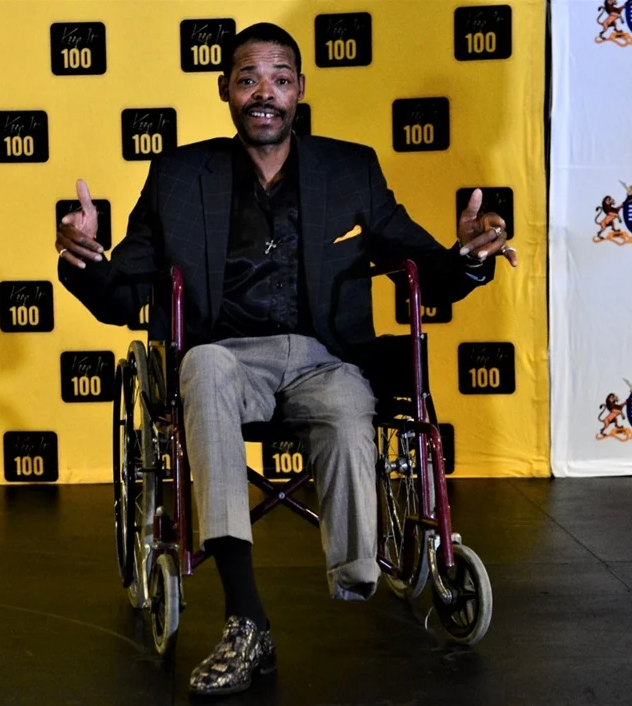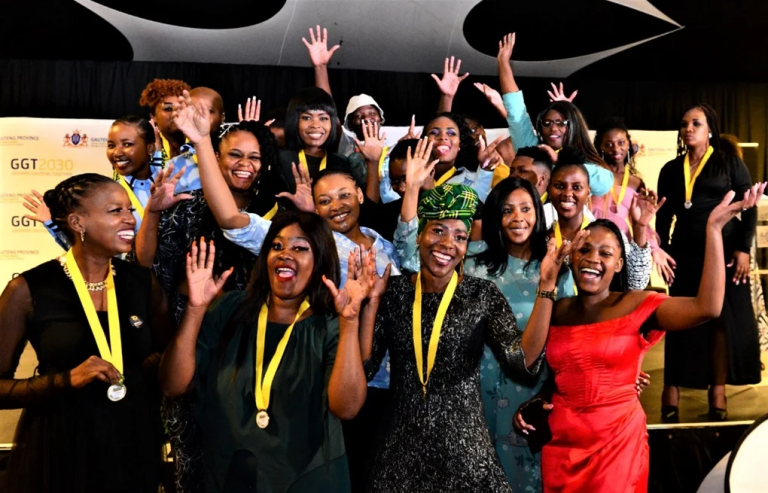Photos: Actor Israel Matseke Zulu graces Ke Moja 10th awards ceremony
Photos: Actor Israel Matseke Zulu graces Ke Moja 10th awards ceremony

MEC for Social Development, Agriculture, Rural Development and Environment Mbali Hlophe has called Amapiano artists to a challenge.
Hlophe was delivering her keynote address at the 10th annual Ke Moja Awards hosted by the Department of Social Development at Birchwood Hotel on Wednesday, 26 October.
She said: “We can’t have music that promotes alcoholism. We can’t have music that promotes putting beer bottles on the head.

“We must have positive messages that build the country, even the things that we watch on TV do not give a fair representation of what blackness is about. We must begin to tell our stories in a manner that should be told.
“We will be working together with Amapiano and we gave them the challenge to come and create a song with Ke Moja about this campaign,” said Hlopho.
The Ke Moja programme was established in 2003 to reduce the demand of drugs in the youth.
The programme is currently implemented by 26 non-profit organisations throughout the Gauteng province.
These organisations are tasked with appointing coaches to create an environment that is free from abuse among children and the youth.

Hlophe said following her appointment, Premier Panyaza Lesufi told her that he wanted her to mainly focus on food security, substance abuse, homelessness and environment sustainability.
Hlophe said: “The stats of drug usage in this country are very scary and worse in this province.
“Unfortunately, this drug problem is prevalent among young people, and we need you as ambassadors to go out there so we can change lives.”
Hlophe said young people don’t want handouts but hands up.
She said the government has the responsibility to assist job creators and they wanted to create social entrepreneurs, not people who only want to make profit.
“We must move people away from drugs, that’s why it is important that we have programmes that speak to your interests and things that you can do that sustain yourself and your family.”

She said Ke Moja should be visible on every corner and in schools.
“We don’t want to just deal with addicts and rehabilitation, but we want to prevent the number of individuals that get addicted.”
Lwazi Gabela (21), a matriculant at Kwa-Dukathole Comprehensive School, said he was grateful to the Ke Moja programme, introduced to him by Tsohang Youth Development in Katlehong, Ekurhuleni.
Lwazi said he stole almost everything just to get high.
Lwazi, who fell into addiction in 2017, said he used to spent at least R800 on the drug CAT every week, and R300 on crystal meth a week when he couldn’t afford it.
“I was introduced to drugs by my friends. It made me feel good and happy,” he said.
“I failed grades, and I didn’t care. I stole from school, neighbours even at home, and my mother eventually kicked me out of school. I dropped out of school and became homeless,” he said.
Lwazi said: “I was raised in a church, and I loved playing soccer. While on the streets, I prayed to God and asked for his intervention. I knew this cannot be my life.”
Lwazi said he has not taken drugs since January and has gone back to school.
Over three million beneficiaries were reached through the programme.
Over 35 000 substance abuse disorder treatment services were provided to users and over 9 000 beneficiaries that completed treatment are participating in an aftercare programme.
The event had eight categories of awards, including the best-performing organisation per region.
The event also celebrated the South African Film and Television Award, recently awarded to the Kick It documentary, which played on SABC.
The documentary is a product of the Ke Moja programme.
Comments are closed.